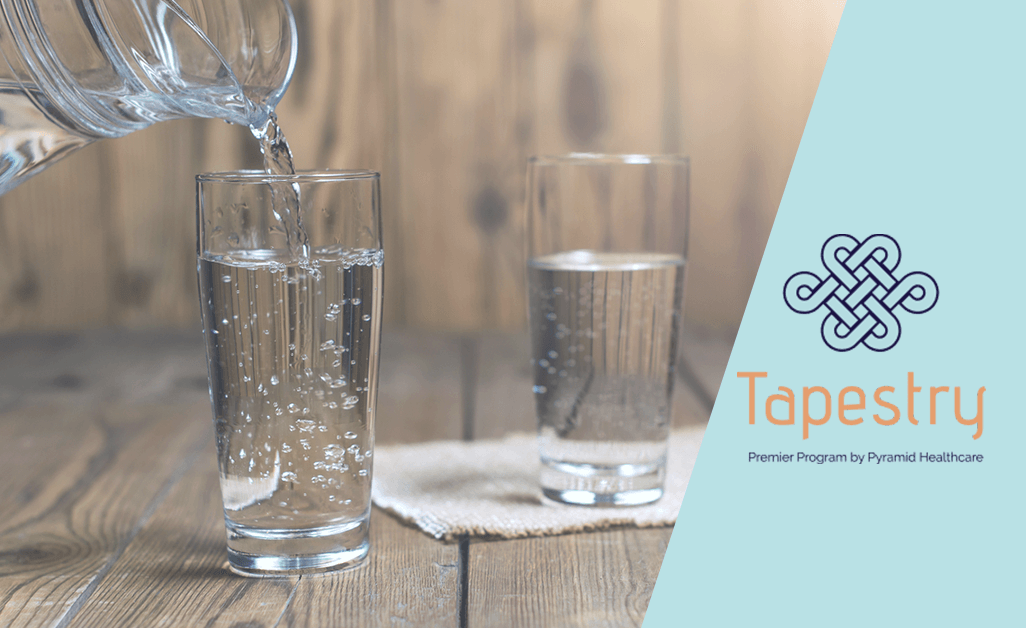Dehydration headaches are one of the most common types of headaches because they can affect anyone, but they’re not described often in the medical literature. While it’s well established that dialysis and hangover headaches are associated with dehydration and the ubiquitous dehydration headache, water deprivation hasn’t been documented as a cause of headache. But a lack of research doesn’t mean that your dehydration headache isn’t real and treatable. Best of all, it’s preventable. The lack of proper nutrition and hydration can exacerbate the symptoms of any other conditions you may have as well and impact your mental health just as much as it impacts your physical health.
What Causes Dehydration?
A dehydration headache may occur when you haven’t consumed enough fluids, but it can also be brought about by losing water. We lose fluids and electrolytes—substances that move electrical charges and signals throughout the body—in four major ways: through vomiting, sweating, urinating, and diarrhea.
A dehydration headache often causes dull, throbbing pain. Dehydration can trigger migraine headaches as well as garden-variety headaches. The National Headache Foundation recommends considering whether you’re dehydrated anytime you have a headache.
Common signs of dehydration include:
- Increased thirst
- Fatigue or lethargy
- Dizziness upon standing
- Dark yellow urine or decreased urination
- Sticky or dry mouth
- Irritability
People who are at a higher risk of dehydration include older adults and young children, as well as individuals living with chronic illnesses like diabetes. People who live in hot climates or higher altitudes are also more likely to be dehydrated.
How to Prevent Dehydration Headaches
If you think you may be suffering from a dehydration headache, a glass of water or two should make the headache go away within an hour or so. If your dehydration is severe, it’s important to replace lost fluids and electrolytes with an oral rehydration solution, such as Pedialyte.
The best way to prevent a dehydration headache is, of course, to stay hydrated. Here are some tips for getting enough fluids each day:
- Drink a large glass of water upon awakening each morning and an hour before going to bed each night
- Drink a glass of water with each meal
- Drink water during and after a workout or while you’re outside on a hot day
- Keep a water bottle on hand and take sips frequently throughout the day
- Eat plenty of fruits and vegetables, which are mostly water
- Replace sugary drinks like soda, fruit juices, and sports drinks with water
Staying hydrated will not only prevent a dehydration headache, but it will keep your body’s systems working optimally for better overall health. While there are many things you can do to improve your mental health, making sure to drink enough water every day is one simple and easy way that you can keep unpleasant feelings like anxiety and depression at bay.
Your Mental Health Is Our Priority
Water has been linked to improvements in our health time and again, but some studies show it’s also linked to our mental health. According to a 2014 study, researchers found that people who drank increased amounts of water each day generally felt more calm and positive emotions. Other studies have found that dehydration can make a person more fatigued, confused, and depressed.
At Tapestry, our professionals treat eating disorders and mental disorders through trauma-based therapy. Our clients’ mental health is our top priority, and our team of experts knows that mental issues are often the root of disorders like addiction and bulimia. We take a holistic approach to treatment and can help you heal physically, mentally, and emotionally so you can return to your life and make healthier decisions for your future.
Fill out our form online or give us a call at (828) 490-4032 to learn more about how Tapestry treats mental disorders in Asheville and the surrounding areas in North Carolina. We create customized plans for each client with the knowledge that no two people experience mental issues in the same way.






